- Home
- Madeleine L'engle
The Young Unicorns Page 5
The Young Unicorns Read online
Page 5
“Vicky,” Emily said, “I love your mother, you know.”
“I know.”
“I don’t even remember my own mother, not really. I was only four when she died. Sometimes I think I remember things, but I’m never sure whether or not it’s something Papa’s told me. All I’ve really known have been housekeepers, and some of the teachers at school. Oh, Vicky—” Emily spread out her arms and Vicky dodged to avoid being hit on the nose, “when Mrs. McTavish went back to Scotland to live, and you all came to stay in Dr. Shasti and Dr. Shen-shu’s apartment, I thought I’d absolutely hate it when Papa arranged with your mother to have me eat with you and everything. I thought I was going to lose my freedom. I even talked to Dave about running away with him. But it’s been—splendiferous.”
“It’s been pretty splendiferous for us, too,” Vicky said. “Not just financially, but getting to know you and Dave, and being friends.”
Emily gave a small sigh. “Mr. Theo thinks my guardian angel arranged it. He says it’s about time it started paying some attention to me. Vic, I know Suzy was right to knock the genie’s beastly old lamp out of my hands yesterday, but it’s you I want to talk to about it.”
Vicky said nothing, simply sat there on the window seat, waiting. The small boat moved on up the river under the delicate pale green lights of the George Washington Bridge, and slid out of sight. The wind moved the trees on the Drive back and forth across the street lamps so that light and shadow mingled and intermingled. She wanted to touch Emily for comfort, as she would have Rob, but she kept her hands in the lap of her bathrobe and looked steadily out over the river. The arch of the great bridge seemed to sway lightly in the wind. She shivered.
As though she had seen, Emily said, “It’s cold tonight.” She put her arm out and spread the palm of her hand against the window glass. “Well … when I could see, and I was practicing the piano, and I’d forget something—and the funny thing is that the pieces you forget are the ones you’ve had memorized the longest—well, what would happen would be that if I tried to think what the notes were, I couldn’t, or if I tried to think with my mind which was the fingering Mr. Theo and I had worked out, I couldn’t. My mind just wouldn’t remember. You’ve had piano lessons. Do you know what I mean?”
“Yes,” Vicky said. “And just the way you say, always with the pieces I’d known by heart best. I’d get my fingers mixed up and get stuck.”
“So what did you do then? Look it up in the music?”
“Not always,” Vicky said slowly.
“Well, what did you do?”
Vicky spoke reluctantly. “I closed my eyes and thought about something else. If I sort of went into a daydream, or made plans about something or thought about homework—then, usually I’d remember the notes.”
Emily’s strong fingers closed about the cushion on the window seat. “But it wasn’t your mind that remembered, was it? Your fingers would remember for you?”
“Yes. It always struck me as sort of funny, how my fingers could do it when my eyes or my mind couldn’t. But I’m not a musician, Emily. I love music, all our family does, but Mother’s the only one who really might have been good at it if she hadn’t married Daddy. I love to fiddle around at the piano, but I used to goof off on my practicing.”
Emily frowned, turning the subject back. “I hated to have to look something up in the music after I’d memorized it. I used to make my fingers remember for me, when my mind had forgotten, and they almost always would. I think it’s called kinesthetic memory or something. Anyhow, I always had it, you see. And that made things easier, I suppose. I mean about what was most important. Even so, I’ve never quite believed it. Being blind. I know it with my mind. I mean, I do understand that there isn’t going to be a grand and splendid operation the way there is in TV or the movies. But I don’t know it with me. I don’t suppose I ever will, no matter how used I get to it. I still dream seeing. I dream seeing all of you. I wonder if you really look the way I dream you? I know your mother has purply-blue eyes like Suzy’s, but I see them as grey. And your father’s a brown person. So’re you, but not as dark a brown.”
“Mouse,” Vicky muttered rather bitterly.
“And I can see your apartment. Your mother described all the colors and furniture to me one day, and I can see it. I used to be afraid to go back up, but now the apartment is you, all of you, the Austins … . Well. I forgot to brush my teeth. Be right back.” She hitched the towel around her like a Roman toga and left the window seat. From the bathroom she called over the sound of running water, “You know the Englishman—”
“What Englishman?” Vicky asked vaguely. This was the first time Emily had ever talked about her blindness, or had referred, even indirectly, to the accident that had caused it.
But Emily had moved far beyond her last thoughts. She sounded impatient. “Oh, you know, Vicky, the one who spoke to me after I called the genie up. The one Rob said had no eyebrows. Do you suppose we’ll ever see him again?”
“I doubt it.”
“I don’t,” Emily said.
Four
The following afternoon after school Vicky took Mr. Rochester for a walk in Riverside Park. Dave was reading Emily’s social-studies homework to her, and making her memorize the names of South American rivers and mountains. Both of them were in bad moods, Emily insisting that it was a waste of time to burden her memory with useless facts when she needed to keep it clear for important things. Dave could not produce a logical argument, so was reduced to yelling. Suzy in turn told them to shut up so that she could work. She was still nursing her cold and was cross about the math work the others had brought her home from school and which she did not understand. Rob was lying under the dining-room table playing a private game with his battered wooden trains.
Vicky went out into the kitchen, where her mother was starting dinner. “Is it all right if I walk Rochester? Somebody has to.”
“Somebody usually does,” Mrs. Austin said. “But you may if you want to. Anything wrong?”
“Nothing special.” Vicky looked into a pot simmering on the stove and sniffed at its contents. “Everybody else seems to be in a stinky mood so I suppose it’s okay for me to be in one, too.”
Mrs. Austin was briskly beating eggs in a small earthenware bowl. “A mood’s not quite like measles. You can try not to catch it.”
“You can try not to catch measles, too,” Vicky said, “but it doesn’t always work. Anyhow, I’m the only one who likes walking Rochester in this weather. It makes me feel like Emily Brontë.”
She left the house, crossed Riverside Drive, and walked along the upper level of the park. Even with the protection of Mr. Rochester she was not allowed down in the park proper after dusk, and shadows deepened early on these cold November evenings. The street lamps were beginning to come on, and a soft fog was rolling in from the river so that the Jersey shore was obscured and the jeweled span of the George Washington Bridge no more than a faltering glow. Across the Drive, the houses and apartment buildings faded into the mist.
She was isolated in a small world of swirling fog and soft drops of moisture blowing against her face. At first she walked rapidly for the dog’s sake. She would have liked to dawdle dreamily along by the wall, pretending to be Emily Brontë looking out over the trees and shrubbery where the fog was rolling softly in from the river, but Dave had warned her that rats lived in the park wall and that they were dangerous. What kind of wild animal might Emily Brontë have had to watch out for on the moors?
She always felt a sense of magic in the park when it was foggy or rainy and not many people were out. Forgetting Rochester, forgetting rats, she leaned her elbows on the stone wall. Even the trees close to her were blurred by soft tendrils of fog. A twitching dark shadow startled her, but it was only a squirrel who ran along the wall, saw her, jumped down, and rushed in terror up a tree. Rochester barked in frustration because he couldn’t chase it as he would have done in the country (though he had never come near to catching one),
jerked roughly at his leash to remind her that the walk was supposed to be for his benefit, and pulled her on up the pathway.
Occasionally they met another dog walker; some of the dogs they knew, and she would pause while Rochester sniffed and wagged. One amiable collie had already become an old friend, and the two dogs were allowed off their leashes for five minutes of wild and joyous romping. Vicky called Rochester back as a snarly little Pomeranian approached, straining ferociously at the safety of his leash and barking imprecations.
“Quiet, Rochester,” Vicky said. “Behave.” She held him on a tight leash and walked rapidly up the path, leaving the Pomeranian yapping something extremely rude.
While they walked, the fog thickened, so that the few other strollers seemed to appear out of smoke. She was so absorbed in the beauty of fog and solitude that she almost bumped into a man who was walking a great, jowly brindle bulldog. She let out a small gasp.
“It’s all right,” the man said with quick reassurance, putting out a hand to steady her. “He just looks ferocious. He’s really utterly amiable.” He had a low and pleasant English voice.
The two dogs were already sniffing. “So’s Mr. Rochester,” Vicky said. “He’d defend any of us to the death if he had to, but he’d never start a fight.”
“Who’s us?” the man asked.
“Me and my family.”
“Do you live around here?”
“Yes. Down a few blocks. Do you?”
“I’m in New York on a bit of a visit. Cyprian belongs to my host. He’s a charmer, isn’t he?”
The two dogs were trotting companionably along together. Cyprian paused to investigate a lamppost and Rochester halted, following suit. In the small yellow circle of light that pushed at the white and swirling fog Vicky was able to observe her companion. He was a tall, middle-aged man in a dark overcoat and hat. He had penetrating eyes and a relaxed, easy expression. Vicky regarded him casually; then something in her clicked: the man had no eyebrows.
“Something wrong?” he asked her.
She stuffed her hands into the pockets of her navy duffel coat. “No. Why?”
“You look as though you’d just seen some kind of apparition.”
“Well,” Vicky said cautiously, “you sort of looked like somebody.”
“Oh? Friend of yours?”
“Not exactly …”
“Enemy?”
“Oh, not that, either. I don’t know him.” Then, on an impulse, she blurted out, “May I ask you something?”
“What?”
“Do you believe in genies?”
They were in the foggy shadows between lampposts, but he stopped, holding the big brown dog on a short leash, and peered at Vicky. “What an odd question.”
“Yes, I know.” She gave an embarrassed laugh. “But do you?” She looked at him as he paused to answer. He was surrounded by swirls of fog, and in its smoky movement he seemed far more of an unearthly apparition than the exotic person who had told Emily, Suzy, and Rob that he was a genie. Nevertheless Vicky, waiting for a response, felt a reassuring sense of solidness and reality coming to her from the man.
“It all depends. I rather fancy that if I rubbed a lamp and a genie appeared in the middle of New York City I might be a bit suspicious. Would you mind telling me why you asked?” When she was silent he said, “I answered your question.”
She hesitated; but she had gone so far that to stop now made even less sense than to have started this ludicrous conversation at all. “My little brother and sister and a friend of ours—they’re very responsible, all three of them—they don’t make up silly stories just for jokes or to get attention—” she blundered into silence.
He prodded, “But they told you they saw a genie?”
“Yes.”
“What do you think?”
“Well—I’m from the country and I’m not very sophisticated and when I trust people and they tell me something, even if it sounds as peculiar as something I know they couldn’t have seen—well, I do think they must have seen something, or someone, and it wasn’t just ordinary …”
“I understand,” he said. “That is not at all unsophisticated of you, by the way. Now I must ask you another question.” He started down the path again, walking after the two dogs, who were gamboling along together. “Have you met other people out dog-walking this evening?”
She looked at him in surprise. “Yes. Of course. This is a very dog-owning neighborhood.”
“Did you ask anybody else what you’ve just asked me?”
“You mean about the genie?”
“Yes.”
“Of course not!”
“Why of course not?”
“It’s not the kind of question you go around asking people.”
“But you asked me.”
“Look,” she said, though in the fog neither of them could look very far, “I know maybe this will sound silly, but I trust you.”
“Are you in the habit of making snap judgments about people?”
She couldn’t tell him that she had asked him because he was the Englishman who had spoken to Emily. “No. But Rochester does. If his hackles rise I wouldn’t trust the person he was reacting to with my mother’s marketing list. But he likes you.”
“Are you sure it isn’t Cyprian?”
“Mr. Rochester is not just indiscriminately fond of dogs the way some people are of babies,” she said with dignity. “If he’d thought there was something wrong about you he wouldn’t have paid any attention to Cyprian at all.”
“Vicky,” he said, “don’t talk about this to anybody else, will you, please?”
Vicky.
Now she was frightened.
Perhaps if it hadn’t been for the fog enclosing the park in gentle and fairylike beauty she wouldn’t have spoken. Despite the tangible bulks of Mr. Rochester and Cyprian, Vicky had felt a sense of unreality, of moving in a dream world where it was not only possible but logical to do the unusual. But now the fact that she had told this stranger about the genie seemed enormous and awful and terrifying. “How did you know my name!” she cried.
“You told me.”
“No, I didn’t! It was the one thing I was careful about! You’re never supposed to tell your name to strange men—”
“Vicky,” he said, quickly, reassuringly, “I won’t hurt you. I’m a friend. I promise you. I’m staying—” Then he stopped as both Rochester and Cyprian raced back to them. Barely visible in the fog they could see three leather-jacketed youths, cigarettes dangling from lips and giving out a small glow. Rochester growled. So did Cyprian, who no longer gave the slightest impression of being amiable.
“I’d just as soon they didn’t recognize me,” the man said. “Go home, Vicky. You’re all right with Rochester. I’ll be in touch. Cyprian!” His voice was sharp, commanding. He turned and strode off into the fog, the dog at his heels.
Vicky picked up Mr. Rochester’s leash. The big dog stayed close beside her as the youths approached, emerging from the fog, and strolled on past. As Vicky walked back towards the Gregorys’, she had the unpleasant feeling that they were staring after her. “Let’s run, Rochester,” she said, and panted along the path, her heart thumping from fear and exertion. Without waiting for the light she crossed Riverside Drive and ran up the steps, two at a time, and across the street to the house, pounding on the blue front door. Mr. Rochester, catching her unusual excitement, barked noisily and protectively. She began to fumble in her pocket for her key, but before she found it Dave had opened the door.
“What on earth—” he asked as she rushed into the big hall, Rochester bounding after her but not galloping on upstairs as he usually did.
She tried to catch her breath. “I’m still not used to having a key. We didn’t even have a key in the country. Where’s everybody?”
“Your family’s all upstairs, more or less where they belong. Emily and I are in the music room in front of the fire trying to do Latin. We came downstairs to get out of the zoo for a few m
inutes.”
“Very funny,” Vicky responded automatically. Then, “Dave, I’ve got to talk to you.” Dave was not in any way like her brother John; she would have given anything to be able to talk to John at this moment. But Dave was a boy, and older, yet not in the grown-up world. If he could possibly help her she was sure that he would.
He turned and went back into the music room, and she followed, Rochester still sniffing close behind her.
“What’s the matter with the d-o-g?” he asked. He had picked up the Austins’ habit of spelling when they didn’t want Mr. Rochester to know what they were saying. ‘Though if you think Rochester doesn’t understand when you spell dog,’ Rob had said, ‘you think wrong. He spells better than I do.’ To which Suzy had replied, ‘That wouldn’t be difficult.’
Emily was sitting in the wing chair, her long legs in black knit stockings stretched out to the fire. On her feet were pink ballet shoes. The light from the cannel coal glowed softly over her. Her eyes were closed and her long dark lashes accentuated the contrast between skin and hair. “Vicky?”
“Yes. And Rochester.”
“What’s wrong?” Emily opened her deep grey, almost black eyes. Her expression was strained as though she were trying to see.
Dave sat down in the black leather chair. Vicky, still in coat and gloves, stood on the hearthstone, holding her hands out to the blaze. Mr. Rochester tramped heavily across the parquet floor and thudded to his haunches beside her.
“I’m not sure whether or not I’ve done something awful … . You’re sure the little ones aren’t going to come down?” It infuriated Suzy to be referred to as a “little one” when Emily was not.
“I told them to leave us alone,” Dave said. “Emily may not care about getting a decent academic record, but I promised her father—”
“Shut up,” Emily said. “Vicky, what happened?” She sat forward, her hands out, feeling Vicky’s tension.
Vicky closed her eyes and saw herself in the park again: if she could visualize the tender streamers of fog twining in the trees, if she could see the reassuring bulk of the man with the dog, then it did not seem quite so incredible that she could have talked to him as she had …

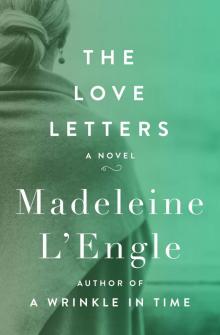 Love Letters
Love Letters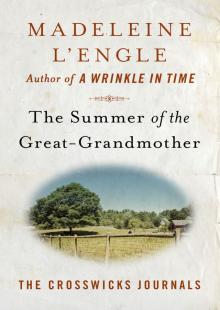 The Summer of the Great-Grandmother
The Summer of the Great-Grandmother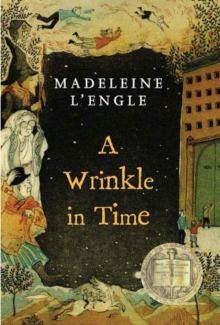 A Wrinkle in Time
A Wrinkle in Time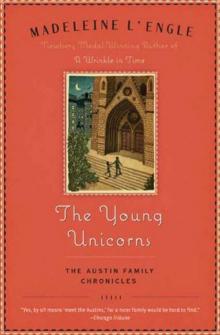 The Young Unicorns
The Young Unicorns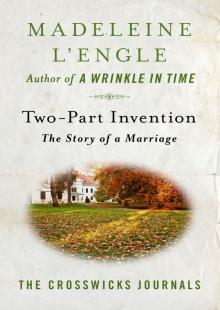 Two-Part Invention: The Story of a Marriage
Two-Part Invention: The Story of a Marriage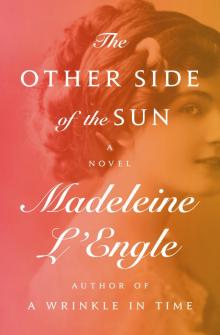 The Other Side of the Sun
The Other Side of the Sun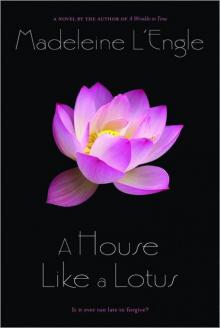 A House Like a Lotus
A House Like a Lotus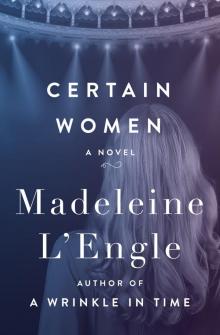 Certain Women
Certain Women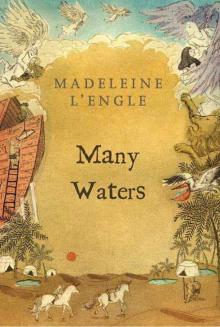 Many Waters
Many Waters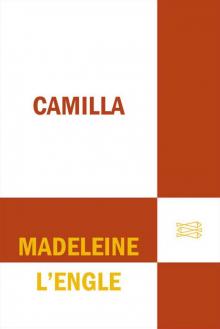 Camilla
Camilla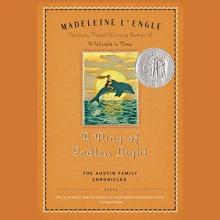 A Ring of Endless Light
A Ring of Endless Light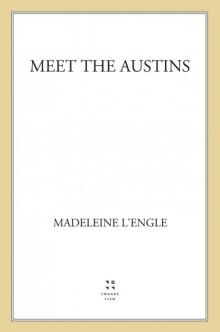 Meet the Austins
Meet the Austins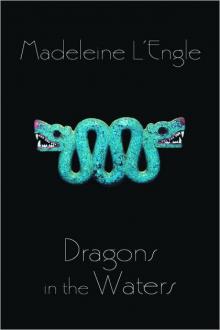 Dragons in the Waters
Dragons in the Waters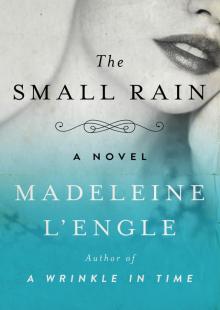 The Small Rain
The Small Rain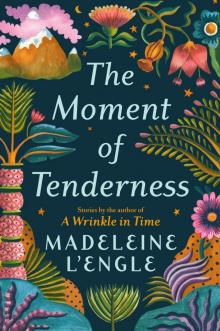 The Moment of Tenderness
The Moment of Tenderness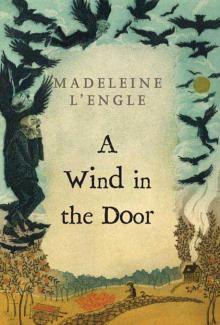 A Wind in the Door
A Wind in the Door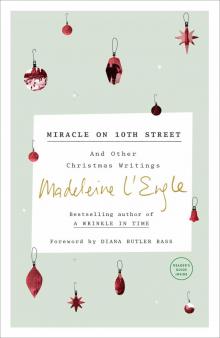 Miracle on 10th Street
Miracle on 10th Street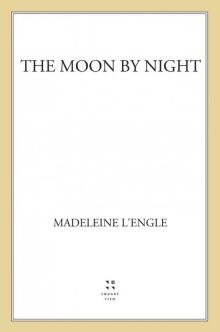 The Moon by Night
The Moon by Night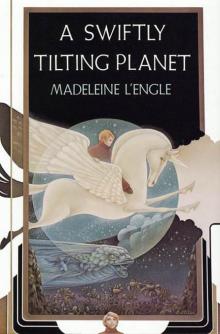 A Swiftly Tilting Planet
A Swiftly Tilting Planet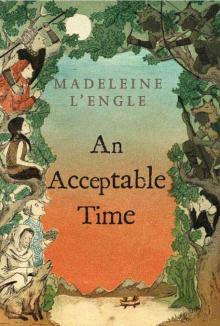 An Acceptable Time
An Acceptable Time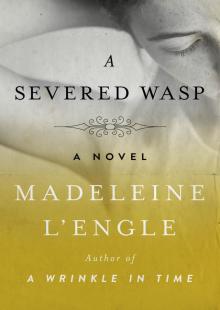 A Severed Wasp
A Severed Wasp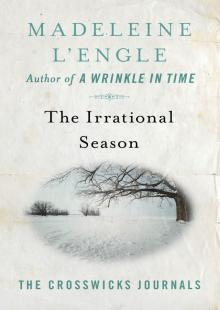 The Irrational Season
The Irrational Season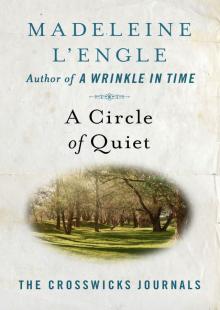 A Circle of Quiet
A Circle of Quiet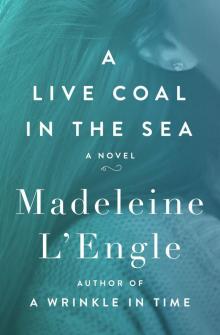 A Live Coal in the Sea
A Live Coal in the Sea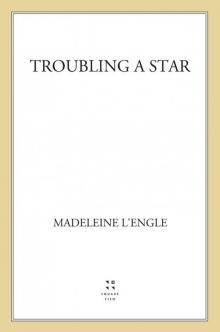 Troubling a Star
Troubling a Star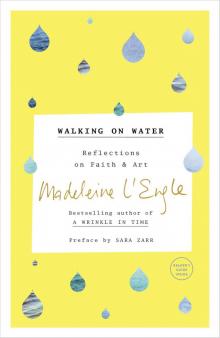 Walking on Water: Reflections on Faith and Art
Walking on Water: Reflections on Faith and Art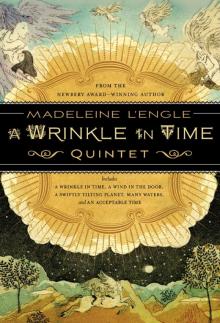 A Wrinkle in Time Quintet
A Wrinkle in Time Quintet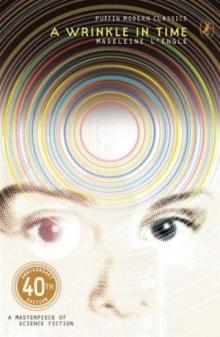 Wrinkle in Time
Wrinkle in Time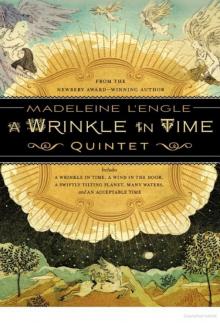 The Wrinkle in Time Quintet
The Wrinkle in Time Quintet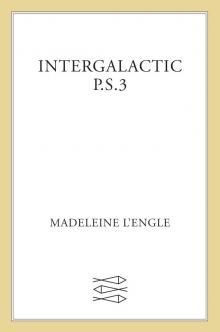 Intergalactic P.S. 3
Intergalactic P.S. 3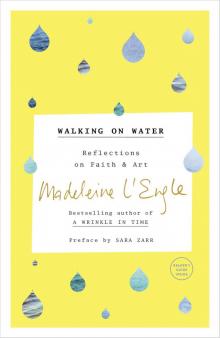 Walking on Water
Walking on Water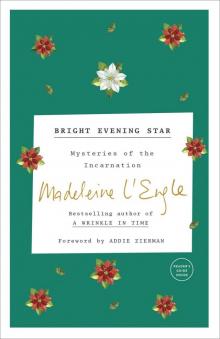 Bright Evening Star
Bright Evening Star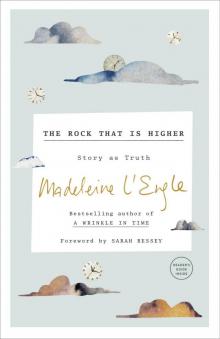 The Rock That Is Higher
The Rock That Is Higher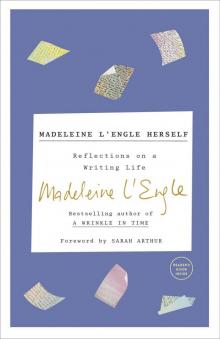 Madeleine L'Engle Herself
Madeleine L'Engle Herself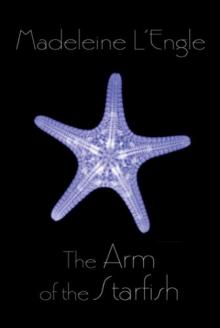 The Arm of the Starfish
The Arm of the Starfish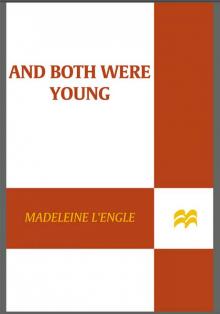 And Both Were Young
And Both Were Young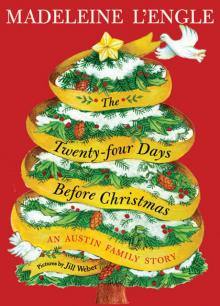 The Twenty-four Days Before Christmas
The Twenty-four Days Before Christmas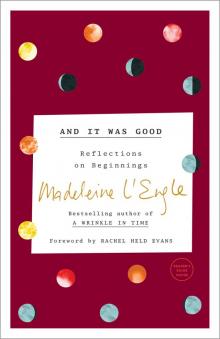 And It Was Good
And It Was Good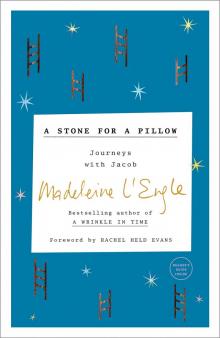 A Stone for a Pillow
A Stone for a Pillow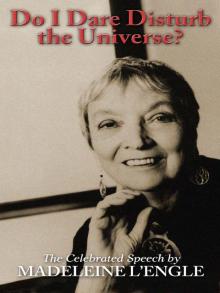 Do I Dare Disturb the Universe?
Do I Dare Disturb the Universe?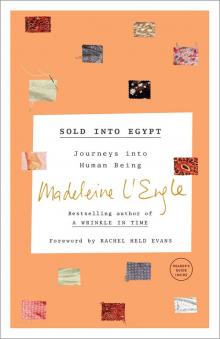 Sold into Egypt
Sold into Egypt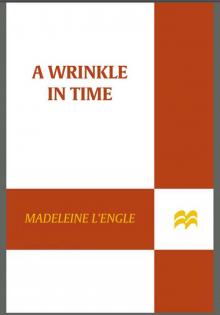 A Wrinkle in Time (Madeleine L'Engle's Time Quintet)
A Wrinkle in Time (Madeleine L'Engle's Time Quintet)